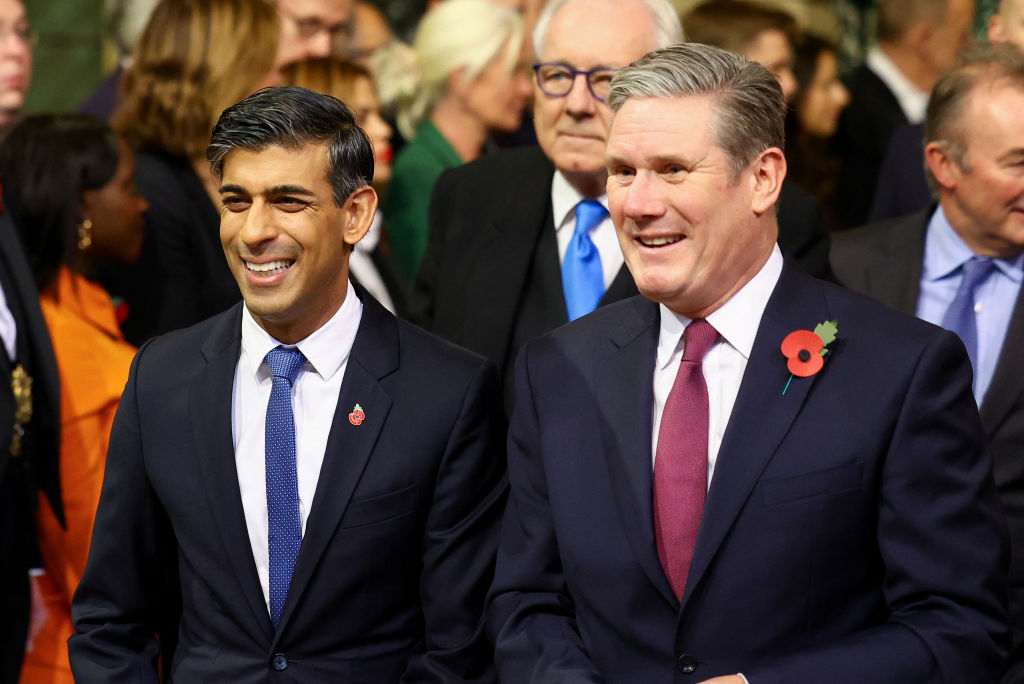- Saturday, April 19, 2025
It was predicted that the opposition Labour Party is poised to secure 403 seats, comfortably surpassing the 326-seat mark necessary for a majority.

By: Shubham Ghosh
A COMPREHENSIVE survey involving more than 18,000 individuals on Wednesday (3) forecast a significant setback for the governing Conservative Party, led by prime minister Rishi Sunak, in the upcoming elections. It was predicted that the opposition Labour Party is poised to secure 403 seats, comfortably surpassing the 326-seat mark necessary for a majority.
The latest multi-level modeling and post-stratification (MRP) data unveiled by YouGov mirrors a recent extensive poll over the weekend that anticipated a setback for the Tories. The projections suggest a gain of 201 seats for Keir Starmer-led Labour, while the Sunak-led Tories are likely to plummet to merely 155 seats, suffering a loss of 210 seats.
The findings indicate a worse defeat for the Tories than under former prime minister John Major in 1997 when the Tony Blair-led Labour left them with just 165 MPs.
Read: Sunak says polls will happen when people feel ‘things are improving’
“These latest results push Keir Starmer closer toward repeating a Blair-level result for Labour, a full 27 years since Labour’s longest-serving prime minister first took office. In that election, Blair won 418 out of the available 659 House of Commons seats,” reads the YouGov analysis.
“By contrast, Rishi Sunak is now heading for a worse result than John Major’s 1997 total of 165 seats. The coming tidal wave projected by this model would sweep away several major Conservative figures,” it said.
Read: Sunak under pressure as boat migrants’ arrival hits 3-month high
The most prominent members of parliament who could lose their House of Commons seat include chancellor Jeremy Hunt, science minister Michelle Donelan and levelling up minister Michael Gove.
Other senior Tories in the precarious zone with the electorate include Commons leader Penny Mordaunt and former minister Jacob Rees-Mogg.
The Liberal Democrats are up by one seat based on an earlier YouGov model, to 49, on the path to a “significant parliamentary comeback” without any significant changes to their national vote share.
In Scotland, YouGov now projects Labour to comfortably be the largest party. The headline results based on this MRP model would be Labour at 41 per cent of the vote, the Conservatives at 24 per cent, the Liberal Democrats at 12 per cent, the Greens at 7 per cent, far-right Reform UK at 12 per cent, and others at one per cent.
YouGov said it interviewed 18,761 British adults from March 7-27, marking the latest survey to predict a 1997-style outcome for the Conservatives when the nation goes to the polls, which Sunak has indicated will be held in the second half of the year.
“Constituency-level projections were estimated using the same statistical method which correctly predicted the 2017 and 2019 UK general elections – multi-level modelling and post-stratification (MRP),” it said.
The repeal of the Fixed-term Parliaments Act in 2022 restored the ability of British prime ministers to set election dates. However, by law a general election has to take place at least every five years, making January 2025 the outermost deadline for Sunak to go to the ballot box.
(With PTI inputs)